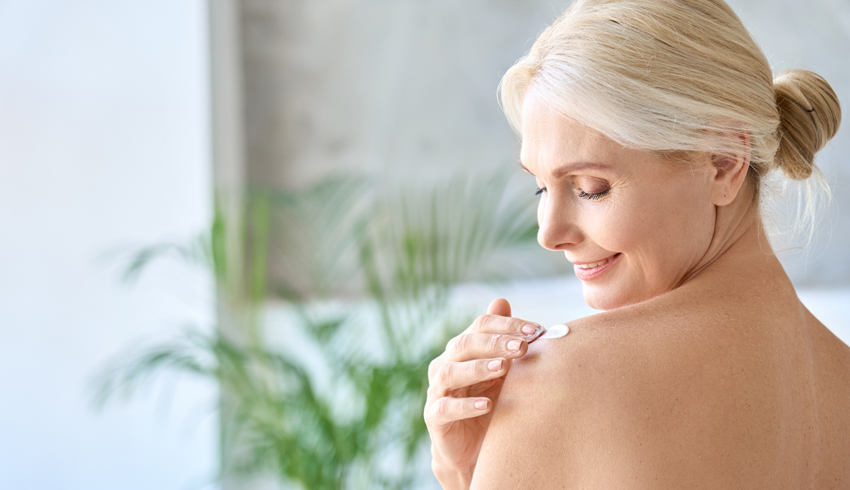Acne from Reused Gym Clothes: Combat and Prevent Breakouts
As a beautician, you've likely encountered clients plagued by acne, often baffled by its sudden appearance. One surprisingly common culprit is acne from reused gym clothes. The connection between sweaty workout gear and skin blemishes is stronger than many realize, emphasizing the need for diligent post-exercise skin care routines.
Understanding the cause of this specific type of acne is crucial. Gym clothes, if not properly cleaned after use, can harbor bacteria, sweat, and oils that are transferred back to the skin with subsequent wears. This environment is a breeding ground for acne-causing bacteria, such as P. acnes, leading to breakouts and irritation, particularly on the body.

Why Reused Gym Clothes Trigger Acne
Reusing gym clothes without washing them is an often-overlooked mistake. After a workout, sweat and dead skin cells accumulate in the fabric, providing food for bacteria and trapping moisture. This creates the perfect environment for acne to thrive, especially on the back, chest, and shoulders.
The friction from tight gym clothes further exacerbates this. As the fabric rubs against the skin, it pushes the bacteria deeper into hair follicles, catalyzing the formation of pimples. For those with particularly sensitive or acne-prone skin, this friction can lead to inflammation and even painful cystic acne.
Prevention Strategies for Beauticians
Educating clients on how to prevent acne from reused gym clothes can significantly improve their skin health. Firstly, it's vital to emphasize the importance of wearing clean clothes for each workout session. Investing in multiple sets of high-quality, breathable workout attire can prevent the cycle of bacterial growth.
Encourage clients to shower immediately after exercise. This minimizes the time sweat and bacteria remain on the skin and can significantly reduce the risk of breakouts. For a deeper clean, you can recommend specific body washes for acne that help unclog pores and remove impurities without drying out the skin.
Incorporating Proper Gym Hygiene
Proper gym hygiene also plays a critical role in preventing acne. Recommend that your clients avoid touching their faces during workouts and ensure that they regularly disinfect gym equipment before and after use. This can prevent the spread of bacteria and other pathogens that may contribute to skin issues.
It might be beneficial to share tips on preventing body acne from poor hygiene habits, as these often translate into effective gym habits. Encourage your clients to develop a skincare routine tailored to their specific needs and skin types, utilizing products designed to combat and prevent acne effectively.
Skincare Regimens and Recommendations
For beauticians, recommending the right skincare products can make a significant difference in managing and preventing acne from reused gym clothes. Look for products containing salicylic acid or benzoyl peroxide, which target acne-causing bacteria and help keep pores clear.
Encourage your clients to exfoliate regularly but gently, to remove dead skin cells and prevent clogged pores. You might refer them to an article like When to Exfoliate Acne-prone Skin for more detailed guidance. Additionally, advise them to moisturize the skin adequately to maintain its natural barrier and keep it hydrated, avoiding overly harsh or drying products.

FAQs on Acne from Reused Gym Clothes
Can gym clothes really cause acne?
Yes, unwashed gym clothing can harbor bacteria and sweat that lead to acne, particularly when they're reused. The tight, synthetic materials often used can exacerbate this by reducing ventilation and increasing friction on the skin.
How often should gym clothes be washed?
It's best to wash gym clothes after each use to remove sweat, oils, and bacteria and prevent them from building up in the fabric.
Are there any specific materials to look for in gym clothes?
Yes, opting for moisture-wicking, breathable fabrics can help reduce sweat and bacteria buildup, minimizing the likelihood of acne development.
Managing acne from reused gym clothes requires a concerted effort in both hygiene and skincare. By educating clients on these essentials, you can help them achieve healthier, clearer skin. For more skincare advice, consider recommending resources like Can Loofahs Spread Acne? or strategic body washes suitable for acne-prone skin.
This article contains affiliate links. We may earn a commission at no extra cost to you.

